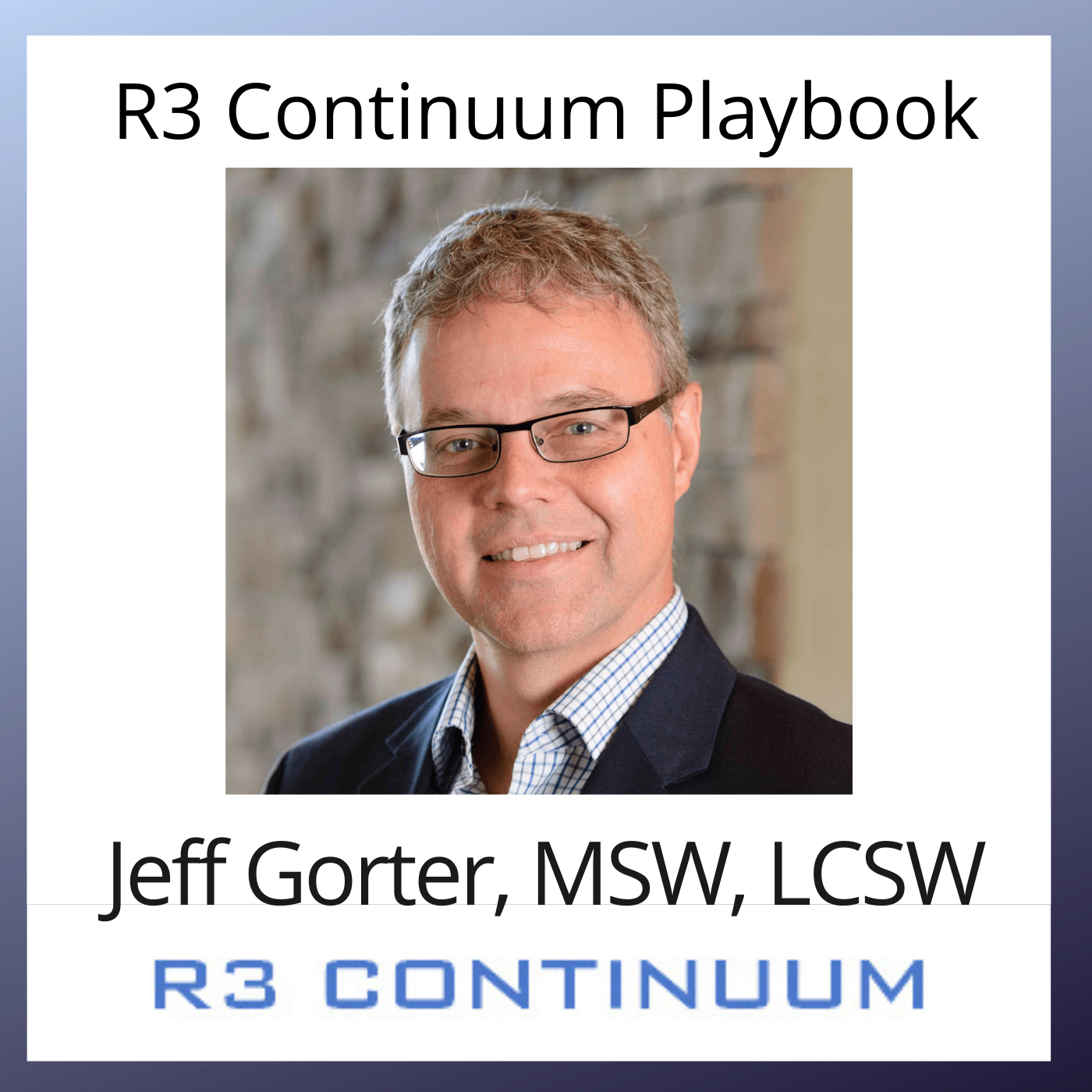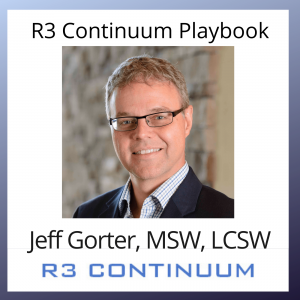
The R3 Continuum Playbook: The Aftermath of Disruption: How to Create an Emotionally Healthy Workplace
How can you maintain an emotionally healthy workplace which promotes positivity, hardiness, and healing? At the same time, how can you do so without diminishing productivity? In a recent webinar, Jeff Gorter, VP of Clinical Crisis Response at R3 Continuum, answered these questions and much more, including the best long-term strategies to support employees after a disruption.
The full webinar, Ask the Expert: The Aftermath of Disruption: How to Create an Emotionally Healthy Workplace, can be found here. The R3 Continuum Playbook is presented by R3 Continuum and is produced by the Minneapolis-St.Paul Studio of Business RadioX®. R3 Continuum is the underwriter of Workplace MVP, the show which celebrates heroes in the workplace.
TRANSCRIPT
Intro: [00:00:00] Broadcasting from the Business RadioX Studios, here is your R3 Continuum Playbook. Brought to you by Workplace MVP sponsor, R3 Continuum, a global leader in workplace behavioral health, crisis, and security solutions.
Shane McNally: [00:00:14] Hi there. My name is Shane McNally, Marketing Specialist for R3 Continuum. On this episode of the R3 Continuum Playbook, we’re featuring a segment from a recent webinar that was done with R3 Continuum’s Vice-President of Crisis Response Clinical Services, Jeff Gorter.
Shane McNally: [00:00:29] The webinar was titled The Aftermath of Disruption: How to Create an Emotionally Healthy Workplace. This was an ask the expert webinar, where Jeff was answering questions that the attendees submitted when they registered for the webinar. We discussed how to provide support to employees in the aftermath of a workplace disruption, how asset framing can change a company’s narrative, how to avoid negative group thinking, and how to create emotionally healthy support system within your workplace.
Shane McNally: [00:00:56] In this segment from the webinar, Jeff discusses long term strategies that organizations and leaders can implement into their work environment to help create an emotionally healthy workplace.
Jeff Gorter: [00:01:07] Some further best practices, some further long term strategies that organizations are incorporating is recognizing that safety concerns right now are paramount in this current phase, in this transition phase. And by safety, I mean both psychological and physical safety. Again, we may feel quite confident about where we stand, not only in our traditional safety operations, but also our safety measures we’ve taken to address COVID.
Jeff Gorter: [00:01:38] But that doesn’t necessarily mean automatically that people feel psychologically safe about that. They may still have questions. They may still wonder. And particularly if we are not communicating transparently to the workforce about what steps we’ve taken to address their safety needs, their safety concerns, you’re going to be constantly playing catch up.
Jeff Gorter: [00:02:02] And so, organizations communicating transparently about here’s what we are doing to address your safety concerns in a larger picture, all of that builds in the culture of health, all of that influences and facilitates that culture of health. That also engenders the trust and engagement of the organization. That reinforces the sense of strength, of hardiness, of perseverance before the next crisis occurs.
Jeff Gorter: [00:02:34] Knowing that we learned some things from the last crisis that we are stronger because of that. Remember that post-traumatic growth and post-traumatic depreciation, and those who recovered the quickest from the depreciation were those who grew the strongest because of that. The struggles we went through directly influences our growth.
Jeff Gorter: [00:02:57] And so, those organizations that are able to highlight here’s what we learned, here’s how we grew, here’s how we are taking additional steps for your psychological and physical safety, builds a culture of health that can withstand the next crisis that’s going to come. And we know there will be. We know there will be other crises. And so, that helps build the hardiness.
Jeff Gorter: [00:03:23] Prioritizing that culture of well-being by incorporating that asset framing approach and that appreciative inquiry, make that part of our standard business operations, make that part of our standard operating procedures. Being able to approach things from that asset perspective, that positive perspective, and asking questions that continue to build on influences that care.
Jeff Gorter: [00:03:53] And continually assessing, opening a regular dialogue with your employees regarding their needs and involving them in those improvement efforts, that kind of engagement gives them a voice. And having a voice is empowering. Think about it, having a voice, being able to have a sense of agency, of influence following two years in which I felt completely out of control, in which I felt like I had no agency, in which I wasn’t able to effectively change or influence things. It was kind of just getting by.
Jeff Gorter: [00:04:29] And so, being able to engage them in what are your needs, and how can we help them, and what suggestions do you have, that kind of improvement dialogue back and forth reinforces a sense of agency and a sense of control, which leads to an empowered and engaged workforce.
Shane McNally: [00:04:51] Creating and maintaining an emotionally healthy workplace can be difficult, but it’s incredibly important. Looking for more information on how to provide psychological and physical well-being to your employees? R3 Continuum can help. Learn more about our R3 Continuum services and contact us at www.r3c.com or email us directly at info@r3c.com.
Show Underwriter
R3 Continuum (R3c) is a global leader in workplace behavioral health and security solutions. R3c helps ensure the psychological and physical safety of organizations and their people in today’s ever-changing and often unpredictable world. Through their continuum of tailored solutions, including evaluations, crisis response, executive optimization, protective services, and more, they help organizations maintain and cultivate a workplace of wellbeing so that their people can thrive. Learn more about R3c at www.r3c.com.
R3 Continuum is the underwriter of Workplace MVP, a show which celebrates the everyday heroes–Workplace Most Valuable Professionals–in human resources, risk management, security, business continuity, and the C-suite who resolutely labor for the well-being of employees in their care, readying the workplace for and planning responses to disruption.
Connect with R3 Continuum: Website | LinkedIn | Facebook | Twitter















